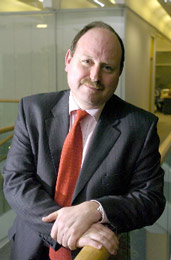LOTS AND LOTS OF STAGE TIME!Ok let's be honest. There is NO way you can improve your public speaking skills unless you get out there to speak! Just like swimming, you will never be able to master it just by reading a book. Granted that the book may offer you a comprehensive guide to 101 swimming techniques or over 200 dos and don'ts of swimming, but you will never master swimming until your feet touches water. Ask any experts and coaches, they will tell you the same thing. You got to get your hands dirty before you learn anything. This applies to any skills you want to pick up too. I would recommend that you read Scott Young's insightful entry on
Learn by Doing which pretty much says it all.
Stage time does not necessarily refer to an hour long speeches. It could be as short as a three min speech. In this case, frequency is much more important that the quantity of time you have to speak. I will encourage you to be creative when it comes to securing stage time for yourself. Joining the
Toastmasters is one way since you will have a chance to speak at least twice a month. You can also look for other speaking opportunities - however short - in your school, workplace or even in your private organization. It can come in form of hosting for a dinner/meeting or conduct business presentations to your clients.
In this entry, I will share with you two ways you can maxmize your stage time.
1. Change your mindsetA lot of us complain about giving speeches for many reasons. I used to be one of them. In the past, giving a speech means gruelling hours of work because of my perfectionist attitude. I want to come up with a perfect speech, one that will wow my audience's pants away. And since I am not at the peak of my craft, it was excrutiatingly fustrating to come up with a "perfect" speech.
However during a conversation with my mentor, I came to realize that my perfectionist attitude could jeopardize my growth. I decided to take a step back and reevaluate my mindset towards preparing and giving speeches. Instead of coming up with a perfect speech, I aim to improve at every speech that I give i.e. to be better than my previous speech. This change in mindset reduced the undue pressure I have on myself and gave me space to grow. The change in me was dramatic. I found myself grabbing at any opportunity to speak. And the process of preparing a speech become much more fun. I was more interested in the process of coming up with a speech, rather than the speech itself. And naturally, I got better.
So before you proceed on, I want you to first step back and reexamine your mindset towards giving a speech. If it is preventing you from moving forward, I urge you to change your mindset, one that will motivate you to get better at your craft. Because without a positive and constructive mindset, no amount of stage time (and self help) is going to help you!
2. Set goalsGreat! So you have change your mindset and you are all motivated to speak. Now what?
You got to set goals. Let's recap. Your intention is to be a better speaker correct? In other words, you want to get from X to Y. You have found motivation to get to Y. But if you have not figure out where Y is, no amount of motivation will get you there! Make sense? That's why you have to set goals, particularly S.M.A.R.T goals! Specific, Measurable, Attainable, Realistic and Timely. In the case of giving a speech, you want to narrow down two or three areas that you want to improve on. Sometimes it could just be one area based on the feedback that you have gathered previously.
Specific:Say you gave a speech last month and you have gotten some feedback. One particular area was in the organization of your speech. In your next speech, you may want to focus on giving a speech that is more organized. Or someone commented that you moved too much (thus causing distractions). Hence you may want to work on body gestures in your next speech. The point is you will decide what goals to set!
However, you need to ensure that you are not overwhelmed with your goals. There is no way you can improve on everything within a short period of time. Hence the best strategy is to see which area is the most important to you and then work on that particular area.
MeasurableMake sure that your goals are measurable else it is impossible for to objectively evaluate if you have improved or not. And that can be very demoralizing. The best way to measure the change is to ask your audience! They are your best judges. For example you are working on improving the organizational structure of your speech. Go back to the person who have commented about your speech organization. Ask if he or she has seen any improvement. And if so, how did it manifest? If it works, good for you. Move on to the next goal. If not, try another approach and then ask for feedback again.
You can also measure your performance using other variables such as timing, preparation time, confidence level or even trophies that you won. But here's the bottomline, set goals that can be measured. If they aren't, I suspect your goals are specific enough. If that's the case, redefine your goal. Make sure it is specific.
Attainable and RealisticI will put these two requirements today. One of the main reasons why goals don't work is because we set extremely unrealistic goals. Some may argue that we should remain optimistic BUT you got to be honest with yourself too. If your goal is to win the International Speech Contest and you have yet to make a single speech, I would encourage you to pick a more attainable goal, like giving five speeches in the next three months.
Creating attainable goals are critical if you want to be successful. Give yourself the opportunity to create small wins because they fuel your confidence and generate momentum for you to create bigger wins! Imagine what it does to your ego and morale when you set goals that are hardly reachable. You will give up almost immediately when your air of optimism dissipates into the thin air. And trust me, it will!
So start small. Take a look at your present state and then plan the goals with respect to that. Every small step counts if it takes you to your destination!
TimelyWhen will you accomplish your goal? Within the next week, next month, next year, eternity???!!! You know what I mean. We are creatures of procrastination. Having specific, measurable, attainable and realistic goals doesn't amount to anything unless you create a time frame to achieve your goal. In my opinion, if you want to see signficant improvement in your speaking skills, you got to speak at the very least twice a month. In fact I will suggest that you speak at least once a week if you are really determined to improve!
So... have you set S.M.A.R.T goals for your upcoming speech? If no, get moving!
Related Posts8 Speaking "Secrets" Revealed: Speak from the Heart8 Speaking "Secrets" Revealed: Be Coachable8 Speaking "Secrets" Revealed: Attract Mentors to Assist You8 Speaking "Secrets" Revealed: Evaluate All Speakers, Simon Cowell's style!







